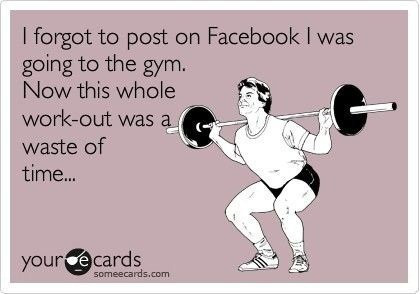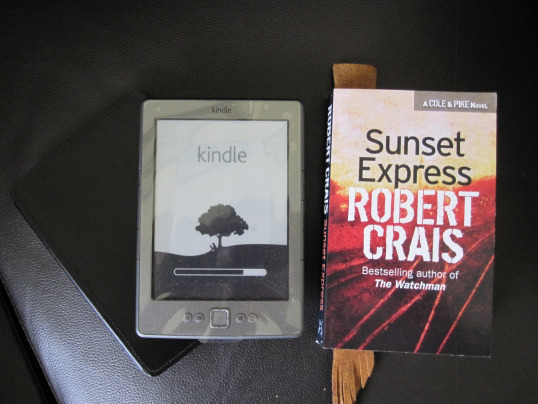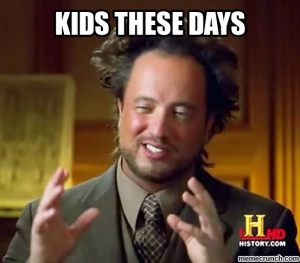Tyson Adams's Blog, page 70
July 12, 2014
Book Review: Criminal by Karin Slaughter
 Criminal by Karin Slaughter
Criminal by Karin Slaughter
My rating: 3.5 of 5 stars
If you ever want to feel better about yourself and your life, there is nothing like reading a book with characters that have a litany of personal problems and struggles. I can’t think of too many people with serial killers for dads, so that has to make your lot in life look better.
Unlike the previous Will Trent story I read from Karin Slaughter, this novel novel is split into two timelines, one in the modern day with Will, the other in the 1970s focuses on the early career of Will’s boss, Amanda Wagner. Karin handles the multiple POVs and timelines seamlessly and I really enjoyed the trials and tribulations of Amanda’s first homocide investigation, and the insights it gave into equality. It is really odd to think that only 30-40 years ago that people would have been phoning the police to report women impersonating police officers, because the idea that women could actually do the job seemed too ridiculous. Check out the interview with Karin discussing this:
It’s good to know that society has come a long way in a generation, not that you’d notice on the Youtube comments section.
Despite enjoying this novel, the characterisation, the social insights, the murder mystery, I could only give it 3.5 stars. The only reason for this was that I’ve had a very busy time of late, with many things competing for my spare time, and this book wasn’t compelling me to pick it up and keep reading. I didn’t have to force myself to read the book, by any means, more that I wasn’t drawn to it in the way I am with my favourite reads.
I’d recommend this book for people who’ve already read some of the Will Trent series, as they’ll get more out of the story than someone new to the Will’s world.
Tagged: Amanda Wagner, Book review, Book reviews, Crime, crime fiction, crime novel, crime writer, Karin Slaughter, Mystery, Novel, Reading, Right What You No, serial killers, Tyson Adams, Will Trent

July 10, 2014
My art is better
This week everyone was so pleased to have another chance to stick the boot into Britney Spears after the release of a recording of her singing rather terribly, allowing us to compare it to the auto-tuned album version. Britney is one of the celebrities people love to hate (South Park parodied this beautifully), and this “proof” that she is undeserving of her success is just the ammunition needed.
Now I’m not exactly the sort of person that would normally try to defend a pop star, because that would require me to listen to some of said pop star’s music, which would count as self-induced torture. But some of the comments that have been made are so intellectually lazy that I’ve felt the need to say something.
The common theme of the comments is that Britney lacks any actual singing talent, that she got where she is by being pretty or that she was manufactured as a pop star, and is undeserving of her success. Which is all utter crap. Spears has been in the entertainment industry since she was referred to a New York talent agent at age 8. Then she got her break after beating out hundreds of other hopefuls to become a Mouseketeer (along with Christina Aguilera, Justin Timberlake, and Ryan Gosling). Spears’ move into the recording industry again required impressing people with her talent, and was noted for her vocal styling and ability.
The producer who recorded Britney’s crappy singing has already addressed the singing and auto-tune issue. I’m not a fan of auto-tune, but I understand its use. While the warming up suggestion could be true, I’d bet money that Spears hasn’t worked on her singing in a decade, thus between not being a teenager anymore, not singing regularly (dancing and singing is not something you can do easily night after night, so miming makes sense), and having had kids, her voice is probably nothing like it was. So it is perfectly understandable that Spears sounded terrible and needs auto-tuning, but that doesn’t mean she has never been able to sing, and as I’ve already pointed out that is a ridiculous claim/insult (see this analysis of her vocals for more).
Essentially, you don’t rise to the top of the heap without some modicum of talent, because there are lots of other hopefuls wanting that same shot at stardom. As for whether Spears’ resulting success is deserved is really subjective, depending upon how much you actually like the music she sings, and how you feel about the “hit factory” style of music creation.
This really shows just how lazy people are with their attacks on successful people. It is very satisfying to pretend that someone’s success is undeserved, that they were just lucky, or pretty, or shagged the right people, or whatever other excuse. Nothing makes you feel more superior than knowing you could have been just as successful, if only you’d been willing to shag that agent, or if you had bigger boobs. Meanwhile those we deem to be deserving artists, suffer in obscurity. But success takes more than being pretty, or lucky; it takes talent, perseverance, motivation, hard work, perseverance, and lots of hard work. For every successful artist (or any other field for that matter) there are hundreds of wannabes that fell at the first, second, third, fourth, or twentieth hurdle. Maybe they didn’t want to put in the vocal practice, maybe they didn’t make the right connections because they pissed people off, maybe they swapped the dream for a day job, maybe they never took their shot (watch Henry Rollins discuss taking his shot), or maybe the artist is too niche for whatever reason.
We all have that favourite band, singer, author, actor, painter, etc, that we feel is under-appreciated in their field. It is easy to wish that they had the success of the artists we see as unworthy. I doubt I have an artist in my music collection that has been as successful as Britney Spears, and I’d argue that most of them have more talent and write better songs. But the very reason I don’t enjoy Spears’ music is also the reason I love the music I do, which means that my favourite artists aren’t going to be as popular.
Which brings me to the argument I’ve raised before about worthiness (here on literature, here on genre vs literature, and here on good vs popular). It is perfectly okay for you to like what you like, there is no “guilty pleasure”. We should also stop pretending that our subjective taste is better than someone else’s. And as this latest furore about Britney shows, we should stop pretending that successful artists got where they are without talent, or hard work, or that their work is somehow inferior to something we prefer.
Tagged: Art, Artist, Author, Auto-tune, Britney, Britney Spears, Hard work, Justin Timberlake, Music, Musician, Right What You No, Ryan Gosling, Sing, Singing, Talent, Tyson Adams, Vocals, Worthiness, Worthy

July 1, 2014
Death of the e-reader?
For quite some time now, which is another way of saying I can’t remember when exactly, I’ve been saying that e-readers are one screen improvement in phones/tablets away from redundancy. Now tech writers (whom I love) are coming round to my way of thinking, with a recent article in Salon suggesting that e-readers are going the way of mp3 players and vinyl:
Tech writers have begun rolling out their eulogies for the humble e-reader, which Mashable has deemed “the next iPod.” As in, it’s the next revolutionary, single-purpose device that’s on the verge of being replaced by smartphones and tablet computers. Barnes & Noble is spinning off its Nook division. Amazon just debuted its own smartphone, which some are taking as a tacit admission that more people are reading books on their phone these days, to the detriment of the Kindle. The analysts at Forrester, meanwhile, expect that U.S. e-reader sales will tumble to 7 million per year by 2017, down from 25 million in 2012.
At New York Magazine, Kevin Roose argues that this is “bad news for the book industry.” He writes:
If you’ve ever tried to read a book on your phone, you’ll know why. Reading on an original Kindle or a Nook is an immersive experience. There are no push notifications from other apps to distract you from your novel, no calendar reminders or texts popping up to demand your immediate attention. And this immersion is partly why people who use dedicated e-readers tend to buy a lot of books. (One survey indicated that e-book readers read about 24 books a year, compared to 15 books a year for paper-and-ink readers.)
A drop in e-book sales, which are actually more profitable for publishers than hardcovers, would certainly mean trouble for the industry. But I’m not convinced that’s where the death of e-readers will lead. Nook and Kindle owners might buy more books than your typical American, but I’m guessing a lot of that is simply because they’re more, well, bookish. As Pew wrote in January, “Adults who own e-readers like Kindles or Nooks read e-books more frequently than those who only own other devices (like tablets or cell phones). However, it is difficult to know whether that is because dedicated e-readers encourage more reading or because avid readers are more likely to purchase e-reading devices.”
Devices come. Devices go. The Kindle and Nook helped teach us all to pay for e-books, and I’m guessing that will be delivering publishers dividends for years to come.
I think we can all agree that e-books themselves aren’t dying, or books for that matter. I’d argue that reading a novel, or similar, will continue to be a pastime for many years to come, regardless of medium: digital, physical, or metaphysical. We’ll probably still be reading books when flame breathing giant lizards enter our dimension to destroy civilisation. After that time we’ll be too busy building something other than giant robots to fight the monsters to worry about reading.
When e-readers originally hit the market, phone screens were much smaller and the iPad was in its infancy, thus the e-ink screens of the e-readers offered a much better reading experience. They were a hit with the avid reading crowd, with the ability to shop for books, read them, shop for more books, read them, maybe do a bit more reading, then think about charging the e-reader in between side-loading some more books. But all of those advantages were heavily reliant upon the better reading experience.
Phones and tablets as e-readers have many advantages: they tend to go everywhere with us; they can access all libraries; they can access all online bookshops, not just the one you bought the e-reader from (*cough* Amazon *cough*); they can be used for audiobooks; they have a larger market share so better technology advancements (i.e. where’s the colour e-ink we were promised?); and they can do things other than be used as a reading device. Now with a range of screen sizes in phones and tablets (e.g. Samsung Note, iPad Mini, iPad, standard phone, etc) there is a non-dedicated e-reader suited to you!
Although, let’s not get ahead of ourselves just yet. This magical new screen I’m seeing in my crystal ball – did I mention I see a breakup on the horizon for Brad and Angelina? – isn’t here yet. Until we have the new screen and e-reader owners are upgrading or replacing their old devices, the dedicated e-ink e-reader is still going to be the device of reading choice for avid readers. The articles are talking about a decline in sales from a peak of 25 million in 2012, to a “predicted” 7 million in 2017. Is this really surprising regardless of a tech upgrade?
You see, this is why I love tech articles so much: the lack of a reality check. 25 million sales in 2012 (26 million in 2011 from my source), on top of other sales in previous years, pretty much taps out the avid reader market to sell e-reader devices to. So any sales after that are going to be from old e-readers dying and needing replacement, which is probably where the 7 million figure comes in (note that my source shows that to occur in 2016, not 2017). That isn’t the death of the e-reader, that is the maturation of the market. I guess we could try to convince avid readers to not spend as much money on books and instead spend more money on buying e-readers, but that would lead to all sorts of problems. We’d need shelves to store all of these e-readers on, maybe even taking up entire walls; file them using some sort of system that allows us to easily find them in order; perhaps hire a person, let’s call them a librarian, to look after these e-readers until someone comes to use them.
So despite my agreement that e-readers will eventually be replaced by other devices, I think that news of the death of the e-reader is greatly exaggerated.
Tagged: Amazon, Book, Books, E-book, e-reader, iPad, Kindle, Nook, Phone, Reading, reading experience, Right What You No, Salon, Tablet, Tyson Adams

June 26, 2014
Just your average gym

I don’t get out to commercial gyms that often. My own home setup is a power rack, barbell, a few hundred kilos of plates, some spinlock dumbbells, a bench, and a bike; which is more than many gyms offer. Thus, I only really step into a commercial gym when traveling or if I’m on holiday. But every one of these gyms has a list of people that inhabit them.
The average gym always seems to have these people. I wouldn’t be surprised if they are moving around to each gym, training multiple times a day, every day, all over the country. I doubt they travel internationally, as I’m sure other countries can come up with their own stereotypes. Please note, these stereotypes don’t seem to apply to powerlifting and weightlifting gyms, probably due to screening at the door by a guy that looks like he ate a bouncer.
Skinny guys lifting in the mirror
I think the reason the skinny guys have to watch themselves so closely in the mirror is due to their lack of muscle, thus needing to be closer to see it working.
Woman who clearly doesn’t want to be there
She will usually be wandering around the gym aimlessly, doing as little as possible, sometimes arguing with her personal trainer about not being able to do any more reps, let alone sets.
Guy who clearly doesn’t want to be there
This guy will usually be middle aged and portly, who was driven to the gym and wheeled through the door on a fridge trolley by his physician, with direct instructions to exercise before he drops dead of a cholesterol induced heart attack.
Person busy checking their phone whilst sitting on machine
This has changed over time, as it used to be the person reading a magazine or newspaper, but now with smart phones people can sit on $5,000 worth of equipment for 30 minutes whilst they check their messages and read Buzzfeed.
Resident couple who spend as much time flirting and smooching as working out
You just know that if there weren’t quite so many people around they’d be having sex on every piece of equipment in the gym. Even the tricep machine.
Big fish in small pond
Often fat, but not always, this is the strongest guy in the gym, which is really not saying much because all the other strong people have left for gyms that have more weight plates.
The clueless lifter
Curling in the squat rack, squatting on a bosu ball, turning every exercise machine into a low back and biceps station: someone shoot them and put them out of their misery.
Mr/Ms/Mrs Overly Revealing Clothing
Since skins, yoga pants, string tees and sports bras became a thing, some people have taken advantage of their gym toned and surgically enhanced bodies with a new found love for revealing as much as possible whilst still technically wearing gym clothes.
Mr Hairgel
Usually, but not always, works as a personal trainer and has artfully styled hair that appears to be doubling as a crash helmet for those heavy pressing days.
Miss/Ms Makeup
Because you need makeup in the gym, not to mention dozens of trips to the bathroom to remedy the sweat streaks as the natural enemies duke it out during the workout.
People there to socialize not workout
Usually moving in loud packs discussing how wasted they got on the weekend. Can also be single people flirting with one another, or single people flirting with clearly married people in a vain attempt to get laid.
See also:
http://animationgangster.tumblr.com/tagged/gymfolk
http://whatculture.com/offbeat/7-irritating-stereotypes-meet-gym.php
Tagged: Dude Perfect, Fun, Funny, Gym, Humor, Humour, Powerlifting, Right What You No, Stereotypes, Tyson Adams, weightlifting, Workout, Yoga

June 24, 2014
Unbelievable plots
Stolen from: http://www.tickld.com/x/the-20-bigges...
Tagged: Funny, History, Humor, Humour, Plot, Plotline, Plotlines, Right What You No, Stories, Tyson Adams, World history

June 19, 2014
Book Review: Secondworld by Jeremy Robinson
 SecondWorld by Jeremy Robinson
SecondWorld by Jeremy Robinson
My rating: 3 of 5 stars
There’s nothing quite like a fast paced thriller to keep the blood pumping. Well, except perhaps a double shot of espresso washing down a hit of speed after an eightball. I think reading might be easier on the heart, though.
Jeremy Robinson’s SecondWorld has probably one of the more suspenseful openings I’ve read in a while. His hero, Lincoln Miller, is stuck underwater with no air left, only to surface and find no air to breath thanks to some mysterious red flakes soaking up the oxygen. If the lack of air wasn’t bad enough, he’s being hunted by a shark. Like I said, suspenseful.
Of course, no air, poisonous red flakes falling from the sky, sharks, that’s just the beginning of a thriller that sees skin-heads and a Nazi plot started back at the end of the Second World War, trying to purify the world. Welcome to SecondWorld.
Jeremy handles the plotting and pacing well, reminding me a lot of James Rollins. This book is a lot of fun and is very entertaining. My problem with the novel comes from some of the details that jarred me straight out of the story. To most readers this wouldn’t be a problem, but for me it was. An example was a .38 Super revolver being referred to as a hand-cannon, something that is a stretch for a yoga master. These errors and the inclusion of an overly obvious ending – not to spoil it, but add cryogenics and Nazis together and what cliche do you get? – and I had to downgrade my score on what was an otherwise entertaining read.
Tagged: Book review, Book reviews, James Rollins, Jeremy Robinson, Lincoln Miller, Nazi, Right What You No, SecondWorld, Suspense, Thriller, Tyson Adams

June 18, 2014
Kids these days.
Something I’ve noticed on social media, and the media in general, is the denigration of kids these days. Whether it be Gen Whatever complaining about the Millennials, or just people complaining about how (insert disparaging adjective here) the younger generation are, I never fail to be amused with the curmudgeons and their ironic statements.
Complaining about the younger generation has been a popular pastime for old people since the invention of young people. Usually the complaints are followed by the creaks of arthritic joints as canes, walking sticks and Zimmer frames are waved at the sky; because everyone knows kids live in the sky these days. Even some of the great philosophers have gotten in on the act of denigrating these uppity kids:
Our youth now love luxury. They have bad manners, contempt for authority; they show disrespect for their elders and love chatter in place of exercise; they no longer rise when elders enter the room; they contradict their parents, chatter before company; gobble up their food and tyrannise their teachers. – Socrates (469–399 B.C.E.)
That’s right, since the dawn of time, old people have complained about young people and how they are destroying society. And we should know, just look at how terrible society is now: deaths from war are at a thousand year low, homicides are also on a steady decline, the economy is on a 2000 year high, literacy levels are at an all time high, we live longer, and less kids die so they get to grow up, become old, and complain about the kids these days. How can we live in such a terrible time in history!
You see what is happening is a form of nostalgia, pining for a time that never really existed. This golden age only appears golden through a pair of rose coloured glasses, from which only the good memories remain, the bad memories having been covered over with years of alcohol abuse. The kids these days are doing the same stuff the oldies were doing at the same age (as witnessed in this Daily Show video).
We really need to stop with this ageist nonsense. Society has advanced: kids learn different things at school because different things will be expected of them in the future, computers are a thing now, phones are really handy, pop music is as dull as ever, and nobody cares how far you had to walk to school back in your day. So let’s stop picking on different age groups and get back to criticising the things that really matter: sport referees.
More articles worth a read:
http://www.anxietyculture.com/antisocial.htm
http://mentalfloss.com/article/52209/15-historical-complaints-about-young-people-ruining-everything
http://startupguide.com/world/the-world-is-actually-getting-better/
http://readingsubtly.blogspot.com.au/2013/06/the-self-righteousness-instinct-steven.html
Tagged: Ageist, Baby boomers, Cognitive bias, Curmudgeon, Death, Deaths from war, Economy, Gen X, Gen Y, Golden Age, Kids these days., Life expectancy, Literacy, Millennials, Nostalgia, Old, Old people, Referees, Rose coloured glasses, Rosy retrospection, Socrates, Survivorship bias, the younger generation, Umpires, Violence, War, Young, Young people, younger generation, Youth

June 11, 2014
20 Proven Benefits of Being an Avid Reader

This fMRI scan reveals distinctive increases in brain activity during close reading across multiple brain regions, with strength of activation shown in red for horizontal cross sections of the brain.
If TV is the lard developing, heart attacking inducing, entertainment form, then reading is the brain workout. I’ve previously posted about how reading is good for the brain, but science is keen on finding out more, so there is always new research that brings up cool findings. I’m reposting an interesting article I found (here) that lists some benefits from reading with links to the research, proving that reading is good for you.
ENHANCES THE SENSES
Merely reading a word reflecting a colour or a scent immediately fires up the corresponding section of the brain, which empathises with written experiences as if they actually happened to the audience. Researchers believe this might very well help sharpen the social acumen needed to forge valuable relationships with others.
ENABLES LIFELONG LEARNING
In correlation with the previous perk, sensual stimulation makes it easier for aging brains to keep absorbing and processing new information over time. This occurs when the occipital-temporal cortex essentially overrides its own programming and adapts to better accommodate written language.
ALLOWS FOR BETTER SKILL RETENTION
Avid readers enjoy a heightened ability to retain their cognitive skills over their peers who simply prefer other media — even when exposed to lead for extended periods, as indicated by an article in Neurology. It serves as something of a “shield” against mental decay, allowing the body to continue through the motions even when facing temporary or permanent challenges.
IMPROVES CREATIVITY
When educators at Obafemi Awolowo University incorporated education-themed comics and cartoons into primary school classrooms, they noted that the welding of pictures to words in a manner different than the usual picture books proved unexpectedly beneficial. Exposure to these oft-marginalized mediums actually nurtured within them a healthy sense of creativity — a quality necessary for logical and abstract problem solving.
BETTER VERBAL ABILITIES
On the whole, readers tend to display more adroit verbal skills than those who are not as fond of books, though it must be noted that this doesn’t inherently render them better communicators. Still, they do tend to sport higher vocabularies, which increase exponentially with the volume of literature consumed, and may discern context faster.
INCREASES ONE’S STORES OF KNOWLEDGE
Anne E. Cunningham and Keith E. Stanovich’s “What Reading Does for the Mind” also noted that heavy readers tend to display greater knowledge of how things work and who or what people were; once again, findings were proportionate to how much the students in question devoured in their literary diets. Nonfiction obviously tends to send more facts down the hatch, though fiction certainly can hold its own in that department as well.
HIGHER TEST SCORES
Some students obviously don’t perform well on tests despite their prodigious abilities, but in general, findings (such as those offered by the National Endowment for the Arts) show a link between pleasure reading and better scores. The most pronounced improvement, unsurprisingly, occurred on exams focused on analyzing reading, writing, and verbal skills.
REDUCED STRESS LEVELS
According to a 2009 University of Sussex study, picking up a book could be one of the most effective strategies for calming down when life grows too overwhelming — great for both mental and physiological reasons. The University of Minnesota built on these findings and recommends reading some form of literature for at least half an hour every day for optimum relaxation.
IMPROVES CRITICAL THINKING
Fully engaged reading sessions — not just skimming, in other words — actively engage the sections of the brain responsible for thinking critically about more than just texts. Writing, too, also serves as an excellent conduit sharpening the skills necessary for parsing bias, facts vs. fictions, effective arguments, and more.
STAVES OFF DEMENTIA
In a British Medical Journal article, academics at the French National Institute of Medical Research showcased their findings regarding the relationship between a mind occupied by reading and a lower risk of dementia. Obviously, literature isn’t going to act as a cure, but nonreaders are 18% more likely to develop the condition and experience worsened symptoms.
DEMENTIA SETTLES IN AT A SLOWER RATE
Readers genetically or environmentally predisposed to MCI, Alzheimer’s, and other disorders characterized by cognitive decline won’t escape their fate if they live long enough; but not only do their literary habits push back the onset, these conditions also encroach at a more sluggish pace. More than any other way to pass the time, picking up some sort of book (no matter the medium) proves among the most effective strategies for delaying and slowing dementia.
BETTER REASONING
Along with bolstering critical thinking skills, the authors of “Reading and Reasoning” in Reading Teacher noted that literary intake also positively influences logic and reasoning. Again, though, the most viable strategy for getting the most out of reading involves picking apart the words themselves, not merely flipping through pages.
CONFIDENCE-BUILDING
Improved literacy means improved self-esteem, particularly when it involves kindergarten and middle school students whose grades will swell as a result, although high schoolers, college kids, and adults are certainly not immune to this mental health perk. Set realistic reading goals and work toward them for an easy, painless (and stress-free) way to kick up the spirits when confidence starts wavering.
MORE WHITE MATTER
Neuron published a Carnegie Mellon paper discovering how the language centers of the brain produced more white matter in participants adhering to a reading schedule over the period of six months. Seeing as how this particular tissue structure controls learning, it’s kind of sort of a good thing to be building, especially when it comes to language processing.
INCREASES BRAIN FLEXIBILITY
Brain flexibility is how the essential organ stratifies itself, delegates tasks, and compensates for damages, and Carnegie Mellon researchers believe reading might serve as a particularly excellent way to encourage this. These discoveries of how the brain organizes itself beg for further insight into the autism spectrum and other conditions that may stem from poor neurological communication.
IMPROVED MEMORY
The physiology of reading itself contributes to better memory and recall, specifically the part involving bilateral eye movement. However, it holds no influence over implicit memories: most of the benefit comes when recalling episodic memories.
BUILDS RELATIONSHIPS BETWEEN PARENTS AND CHILDREN
Kids and parents who read aloud together enjoy tighter bonds than those who do not, which is essential to encouraging the healthiest possible psychological profile. Along with the cognitive perks, these sessions build trust and anxiety-soothing comfort needed to nurture positive behavior and outlooks.
BETTER LISTENING SKILLS
Listening skills improve reading, and reading improves listening skills, particularly when one speaks words out loud instead of silently. When learning a primary or secondary (or beyond) language in particular, fostering interplay between the two ability sets makes it much easier to soak up vocabulary and grammar.
AN EASIER TIME CONCENTRATING
Once again, any bookish types hoping to claim the full benefit of this cognitive phenomenon gain it via close reading and analysis, not skimming, speed reading, and skipping. Because the activity is far from passive, it challenges the mind to focus, focus, focus: which certainly carries over into other areas of life!
ALLEVIATES MENTAL HEALTH DISORDERS
Psychology professionals in the United Kingdom and United States gravitate towards bibliotherapy when treating non-critical patients, thanks to studies printed up in the journal Behaviour Research and Therapy. The practice involves prescribing a library card, which recipients use to check out one of the approved 35 self-help books for 12 weeks; as a supplement (not a replacement) to conventional therapy, it has proven extremely valuable to the clinically depressed and anxious.
Some other articles to read:
http://www.scientificamerican.com/article/your-brain-on-books/
http://news.stanford.edu/news/2012/september/austen-reading-fmri-090712.html
Tagged: Brain, brain activity, close reading, cognitive skills, critical thinking skills, Obafemi Awolowo University, Reading, Reading is good for the brain, research, Right What You No, Science, Senses, Smart, Tyson Adams

June 8, 2014
Job perception: title vs. what you actually do

Cruise ship activities director.
Nightclub owner
Front for drug money laundering operation.
Corporate CEO
Taker of long lunches and caller of meetings to remind people you’re the boss.
Cabinet Minister
The person immediately to the Prime Minister’s right when major announcements are made. Responsible for nodding head in background of TV coverage of the PM making the announcement and the person responsible for any fuck-ups (unless they can be blamed on someone in a government department).
Director of Government Department
In charge of minister publicity stunts and press releases.
Plumber
Semi-professional fisherman with a once or twice a week day job assigning an apprentice to do some plumbing.
Electrician
Similar to plumber except with less water and shorter working hours.
Apprentice
The doer of all shit jobs ever imagined and some that were too gruesome to imagine.
Commercial Pilot
Bus driver with lower risk of crashing, better perks, longer hours, and shorter life expectancy due to radiation at altitude.
Journalist
Press release copy and paste expert.
Columnist
Writer of articles on topics that they probably haven’t bothered to research, or researched by reading what other columnists and journalists have written.
Police Officer
In charge of making sure others don’t do stupid and annoying shit that will hurt everyone around them. Not to be mistaken for parking meter attendants, nor strippers.
Strippers
Not to be mistaken for police officers, firefighters, school girls, secretaries, nurses or prostitutes.
Advertising Executive
Professional liar and manipulator for hire to inanimate objects and services.
Scientist
The survivors of explosions and experiments that engulfed their high schools in flames, now tasked with finding even more cool ways to blow shit up.
Tagged: Advertising executive, Apprentice, Cabinet minister, CEO, Columnist, Commercial pilot, Director of government department, Fun, Funny, Humor, Humour, Jokes, Journalist, Night club owner, Original content, Plumber, Police officers, Prime Minister, Right What You No, Scientist, Strippers, Tyson Adams, Work

June 3, 2014
The Periodic Table of Storytelling
Sometimes my worlds collide and produce awesome stuff. Today I present science smashing into writing and producing a revision of the periodic table of elements (did you know that the periodic table should actually be seen as cylindrical?).
Apparently this gem has been doing the rounds of the internet for at least a year, which shows you how out of touch with reality kids makes you. But recently the Periodic Table of Storytelling has become interactive, with James Robert Harris taking his design of storytelling tropes to the next level. Serial killer name aside, James has created a fun tool that is worth checking out.
James has also developed a few other narrative media that are worth checking out, such as the hero’s journey using Star Trek. See the rest of his webpage here: http://www.designthroughstorytelling.com/design-through-storytelling
Tagged: James Harris, James Robert Harris, Periodic Table, Periodic Table of Elements, Periodic Table of Storytelling, Right What You No, Science, Star Trek, Story tropes, Storytelling, the periodic table, Tropes, TV Tropes, Tyson Adams, Writing











